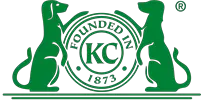Shinese History
The Shih Tzu is a toy or miniature Chinese breed of domesticated dog. The Shih Tzu is nicknamed the “lion” or “little lion”, as it is believed to have descended from the lion-like Tibetan mastiff. The Shih Tzu is a medium-sized, low-set longhaired dog with a distinctively flattened face. The coat comes in all colours, including black, brown, silver, gold, cream, orange, or white, often with white markings on the face, feet, chest, and stomach. The coat is dense and glossy and is usually groomed with a professional groomer or the owner. The Shih Tzu has a distinctive “butterfly” tail which curls over the back. The eyes and ears are small and dark. The muzzle is broad and curved. The origin of the name “Shih-Tzu” is unclear. The most likely explanation is that it originates from the Hokkien language of the Fujian province in China, in which the word shih means “canine”, and tzu means “dog”. Another possible explanation is that it derives from the Japanese word shichi, which means “seven”. However, the generally accepted meaning is simply “small” or “short”.
Shinese Physical Characteristics
The Shih Tzu is a small, toy-sized breed of Chinese origin that traditionally had a white coat with black markings and a plume-like tail, but that has now become more common for them to have a solid color. They stand between 8 and 11 inches at the shoulders and weight between 7 and 16 pounds. They have a round head with a short muzzle and a small, triangular shaped, folded ear that is held together with very long hair. The Shih Tzu has wide-set almond-shaped, expressive eyes. Their thick, soft double-coat comes in many different colors, including sable, red, cream, blue, gray, or fawn, and can be short, long, straight, or curly. They are extremely playful and mischievous.
Eye Colors
Brown
Nose Colors
Black, Brown
Coat Colors
Black, White, Brown, Fawn, Red
Height Range
Male Height Range: 8 – 12 inches
Female Height Range: 8 – 10 inches
Weight Range
Male Weight Range: 10 – 16 lbs
Female Weight Range: 10 – 16 lbs
Shinese Health
Description of breed health.
Lifespan
12-15 yrs
Shinese Health Concerns
Entropion, Skin Fold Dermatitis, Brachycephalic Syndrome, Exposure Keratopathy Syndrome, Pateller Luxation, Invertebral Disc Disease, Eye Conditions, Otitis Externa, KCS, Urolithiasis, Hydrocephalus, Eye Disease, Mitral Valve Disease, Cleft Lift or Palate
Shinese Temperament and Behaviour
The Shiba Inu, also known as the Japanese Chin, is a bold and confident dog that can be very protective of his family. They are often aloof with strangers, and are also very independent. They are very intelligent and like to be challenged. They are very good watchdogs and are generally wary of people they don’t know.
Shinese Activity Requirements
Japanese Chin is a lively, small dog that is eager to please. They are smart, adaptable, and do well in homes with children and other animals. Most Japanese Chin will do best with at least a few hours of activity per day. This can be broken up into several short walks or play sessions throughout the day, or they can accompany you on a long walk. Because they were originally bred as indoor companions, Japanese Chin are not a high-energy breed. While they do not require frequent runs or long walks, they still need to be walked and played with daily. Because of their small size and low energy, Japanese Chin can be a good fit for apartment dwellers. They can be happy in a small home or condo, as long as they get their daily exercise and playtime.
Miles Per Day
6 miles
Activity Per Day
25 minutes
Daily Food
1 cups
Kennel Club Recognition

American Kennel Club
Not Recognized
Shinese is part of the Unclassified group.
Visit the American Kennel Club website.

The Kennel Club
Not Recognized
Shinese is part of the Unclassified group.
Visit the Kennel Club website.

Australian National Kennel Council
Not Recognized
Shinese is part of the Unclassified group.
Visit the Australian National Kennel Council website.

Canadian Kennel Club
Not Recognized
Shinese is part of the Unclassified group.
Visit the Canadian Kennel Club website.